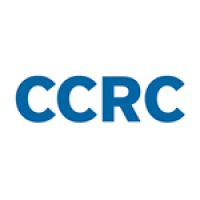By Andrea Lopez Salazar, Lauren Pellegrino, and Lindsay Leasor
The closing of college and university campuses in March due to COVID-19 exacerbated the vulnerabilities of students, including English learners, students with disabilities, low-income students, and those who rely on campus facilities for meals, housing, academic and socioemotional support, internet access, and healthcare services. Advisors—who have historically served students in person on campus—were forced to quickly and drastically transform their practices to meet new student needs. Meanwhile, colleges had to rapidly equip advisors with the knowledge and skills required to perform remote advising and pay particular attention to those who were uncomfortable using technology.
For several years, CCRC has worked closely with colleges and universities as they implemented technology and made structural changes to improve student support and advising services. This summer, the CCRC student support services research team interviewed academic affairs vice presidents, deans, provosts, and advising directors from 23 institutions that have focused on advising redesign for several years. We asked them about their transition to online teaching and learning and how they are providing additional support to students during these times. We learned about the ways colleges have leveraged technology to maximize the student experience in response to COVID-19, provided resources to support student learning, and reconsidered existing practices and policies. We also learned how colleges are thinking about preparing for a post-COVID-19 future.
Some colleges acted quickly to assist students with their technology and connectivity needs. They established WiFi hotspots on campuses for students to work in their cars and distributed laptops for students to continue learning during campus closures. At one college, students could reserve time on a computer at its Student Academic Computing Center for one 90-minute session each day. Students could also use their financial aid or take out an additional loan to purchase a computer. The same college created a virtual student services center webpage with links to various support services, including advising.
At another college, advisors rarely used technology to connect with students before the pandemic, so early on they organized a three-day training for full-time advisors to be able to conduct remote advising. The college also enabled a Skype chat feature for students and advisors to communicate in real-time. In contrast to on-campus advising conversations that happened organically, once the campus went online, advisors started holding bi-weekly check-ins with students.
Another college, which previously committed to “meet students where they are,” was discussing providing online support services to students before the virus hit. COVID-19 accelerated their efforts to provide high-quality, personalized online advising. Several administrators indicated that investments in advising and student support technologies over the last several years made the shift to online advising smoother, and they encountered fewer challenges than they might have if they had not been making those efforts.
Though every college we spoke to lost students mid-semester, we learned that faculty outreach and engagement played a significant role in retaining students and supporting their wellbeing. Faculty and staff at one college called every student to make sure they were home, were safe, and had the appropriate equipment for online learning. Another college made a special point of reaching out to English learners to ensure they were prepared for placement testing for the 2020 summer and fall semesters.
Additionally, because COVID-19 made in-school placement testing impossible, one college reconsidered its placement policy and switched to a multiple measures approach based on unweighted high school GPA to determine students’ placement in English and math courses for summer and fall 2020. Two colleges set up remote proctoring for the Accuplacer so students could take placement tests remotely.
Institutions that had early alert systems that allowed faculty and advisors to “flag” struggling students found the systems to be instrumental during the transition to online teaching and learning. A few institutions reported that they created COVID-related early alert messages, particularly concerning attendance in online classes and referrals to college services. Faculty members were encouraged to issue an alert as soon as they identified a student with absences or other challenges who would benefit from additional outreach. One college reported creating a new early alert immediately after their campus closed to flag students who did not log into their learning management system (LMS) for more than four days. The LMS sends a notification to the instructor and the student and automatically clears the flag when a student logs into the platform.
The COVID-19 pandemic certainly presents many challenges, and remote advising cannot replace the connections created through in-person appointments. However, this moment is also an opportunity for colleges to rethink and reimagine existing practices. Some colleges reported an increase in advising appointment requests and show rates. Additionally, one administrator indicated that some students feel more comfortable joining advising appointments from home, which prompted the college to think about the physical spaces where advising and other supports take place and how they may inadvertently be intimidating to some students. Advisors are also assessing which students are most likely to benefit from virtual interactions. Some colleges stated that they plan to continue offering virtual advising post-COVID-19 to foster a culture of flexibility and increase students’ access to college support. For students who want to meet in person during remote instruction, one college is thinking about holding in-person registration by appointment in a large space on campus like a gymnasium.
Though colleges and universities are having to quickly adapt to teaching and advising students during the pandemic, some benefitted from several years of efforts to improve advising and investments in training and technology. And the sudden shift to remote learning has allowed them to try out new ways to reach students—through intensive outreach and better use of technology—which will benefit students as colleges return to some type of normal in the next months or years.
Andrea Lopez Salazar is a research associate at CCRC. Lauren Pellegrino is a senior research associate at CCRC. Lindsay Leasor is a senior research assistant at CCRC.





